基于Web的员工培训考核系统设计(SQL2000)
无需注册登录,支付后按照提示操作即可获取该资料.
基于Web的员工培训考核系统设计(SQL2000)(含任务书,开题报告,毕业论文说明书16000字,答辩ppt,程序代码,数据库)
摘要
本文从职工培训与考核系统的研究出发,针对系统设计和实现过程中存在的问题,本论文提出了一套利用虚拟现实改造技能培训考核工作的可行性方法和技术路线,并综合利用Web和JSP语言实现了员工的技能培训与考核系统。本论文从技能培训与考核的实际需要出发,提出了系统的设计原则、设计目标、模块组成和体系结构,并完成了培训子系统和考核子系统的设计与实现。在研究了虚拟现实技术、网络技术和数据库技术的有机融合后,考核子系统对基于虚拟操作场景的试题进行了科学的管理和利用,改变了传统的职业技能培训模式。它不但能提高培训的效率、改善培训的效果、还能降低培训的成本,为行业培养大量高水平高素质的职业技术型人才。本系统的可以广泛推广到各行业的职业技能培训中去,具有很高的应用价值。
关键字:培训系统 考核系统 JSP
Abstract:
This article embarks from staff training and the inspection system's research, And realizes the question which in view of the system design in the process exists, And realizes the question which in view of the system design in the process exists, The present paper proposed a set of use virtual reality transformation skill training inspection work feasible method and the technical route, And comprehensive utilization Web and the JSP language has realized staff's skill training and the inspection system. The present paper embarks from skill training and the inspection actual need, Proposed system's principle of design, the project objective, the module composition and the architecture, And completed has trained the subsystem and inspects subsystem's design with to realize. After having studied the virtual reality technology, the networking and the data bank technology organic fusion, Inspected the subsystem to carry on the science management and the use based on the pseudo operation scene test question, Changed the traditional vocational skill training pattern. Not only it can enhance training the efficiency, the improvement training effect, also to be able to reduce training the cost, For profession raise massive high level high quality professional technology talented person. This system may widely promote to various professions vocational skill training, has the very high application value.
Key words: Training system Inspection system JSP
主要功能:
(1)系统模块:包含了管理员模块、员工模块、课程模块
(2)员工模块:实现对员工的个人信息进行管理,查询课程、提取试题、答题、查询等功能
(3)管理员模块:实现课程的筛选,选取试题,阅卷及上传成绩等功能
(4)课程信息模块:包括课程的添加、修改、删除、浏览以及试题的管理
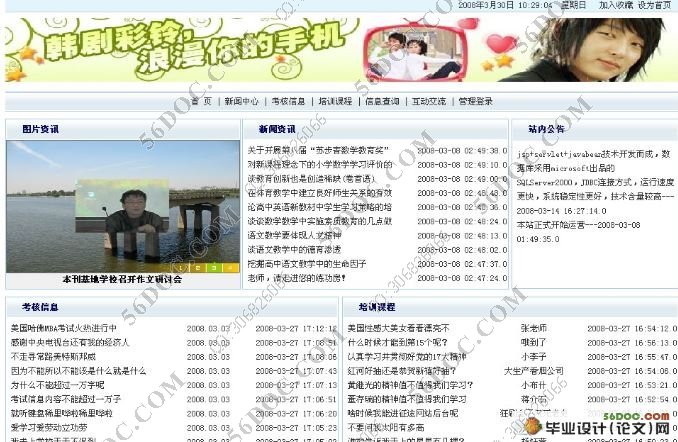
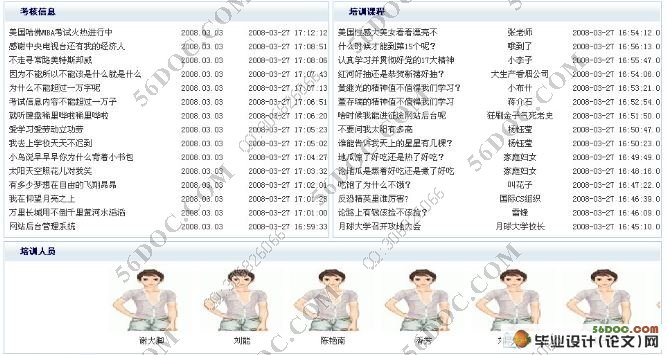
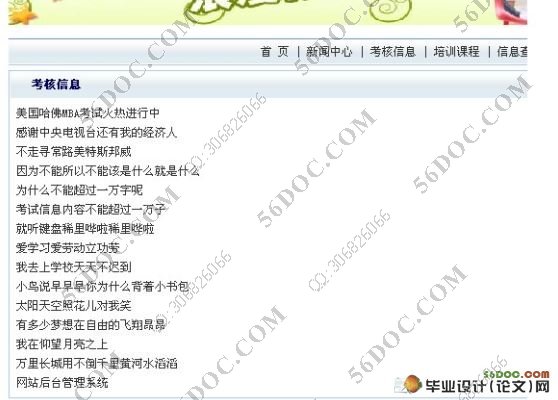
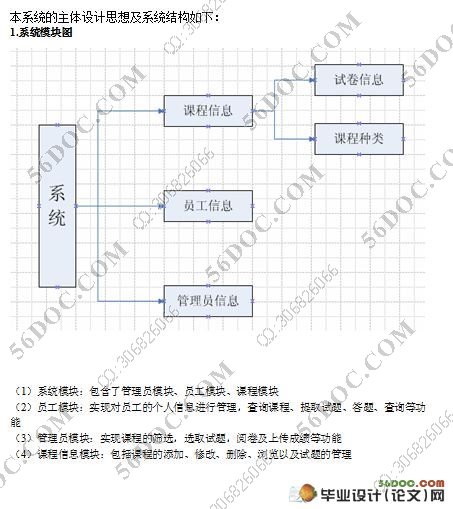
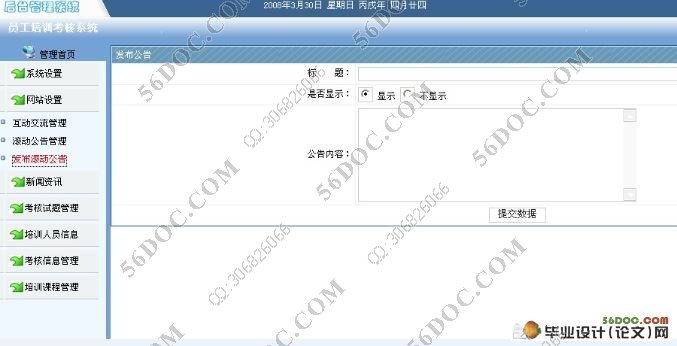
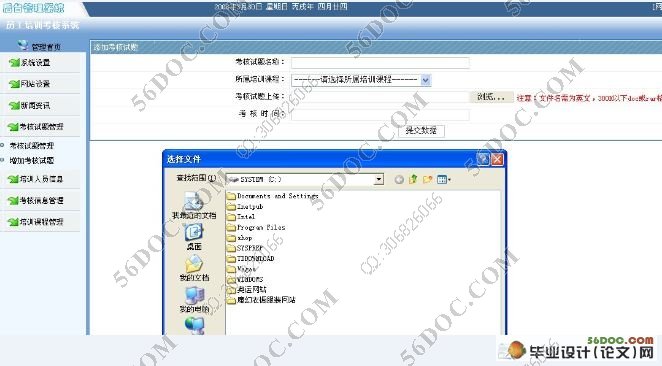
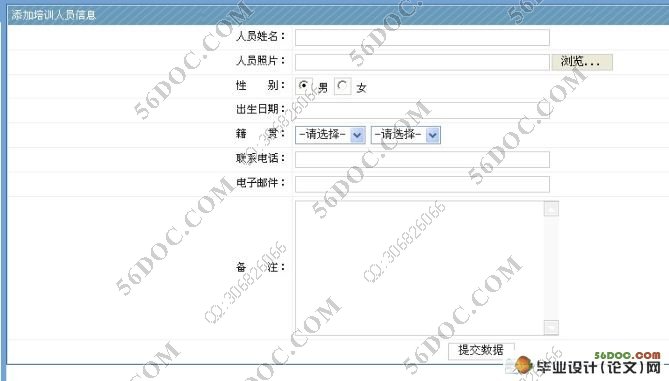
目录:
绪论---------------------------------------------------------------------1
一、开发背景与意义-------------------------------------------------------1
1.1 培训理论的研究及发展-------------------------------------------------1
1.2 国内外的培训现状-----------------------------------------------------3
1.3 如何设计员工培训方案-------------------------------------------------4
1.3.1培训需求分析---------------------------------------------------=----4
1.3.2 培训方案各组成要素分析---------------------------------------------5
二、JSP运行环境及相关开发软件简介---------------------------------------10
2.1 JSP运行环境---------------------------------------------------------10
2.1.1 相关软件介绍-------------------------------------------------------10
2.1.2 JSP环境的配置方案-------------------------------------------------10
2.2 开发软件的介绍-------------------------------------------------------12
2.2.1 Dreamweaver MX 2004的简介------------------------------------------12
2.2.2 Dreamweaver MX 2004的特点------------------------------------------12
2.2.3 Fireworks MX 2004的简介--------------------------------------------14
2.2.4 Fireworks MX 2004的特点--------------------------------------------14
三、数据库的设计----------------------------------------------------------16
3.1 所用到的后台数据库的设计----------------------------------------------16
3.2 JDBC介绍及主要的数据库操作-------------------------------------------18
3.2.1 JDBC介绍-----------------------------------------------------------18
3.2.2 数据库的连接--------------------------------------------------------20
四、软件的安装与配置------------------------------------------------------22
五、软件调试--------------------------------------------------------------23
六、软件测试--------------------------------------------------------------23
七、用户手册--------------------------------------------------------------24
7.1 管理登录系统----------------------------------------------------------24
7.2主要功能---------------------------------------------------------------25
八、 总结-----------------------------------------------------------------25
九、致谢------------------------------------------------------------------25
主要参考文献-------------------------------------------------------------26
